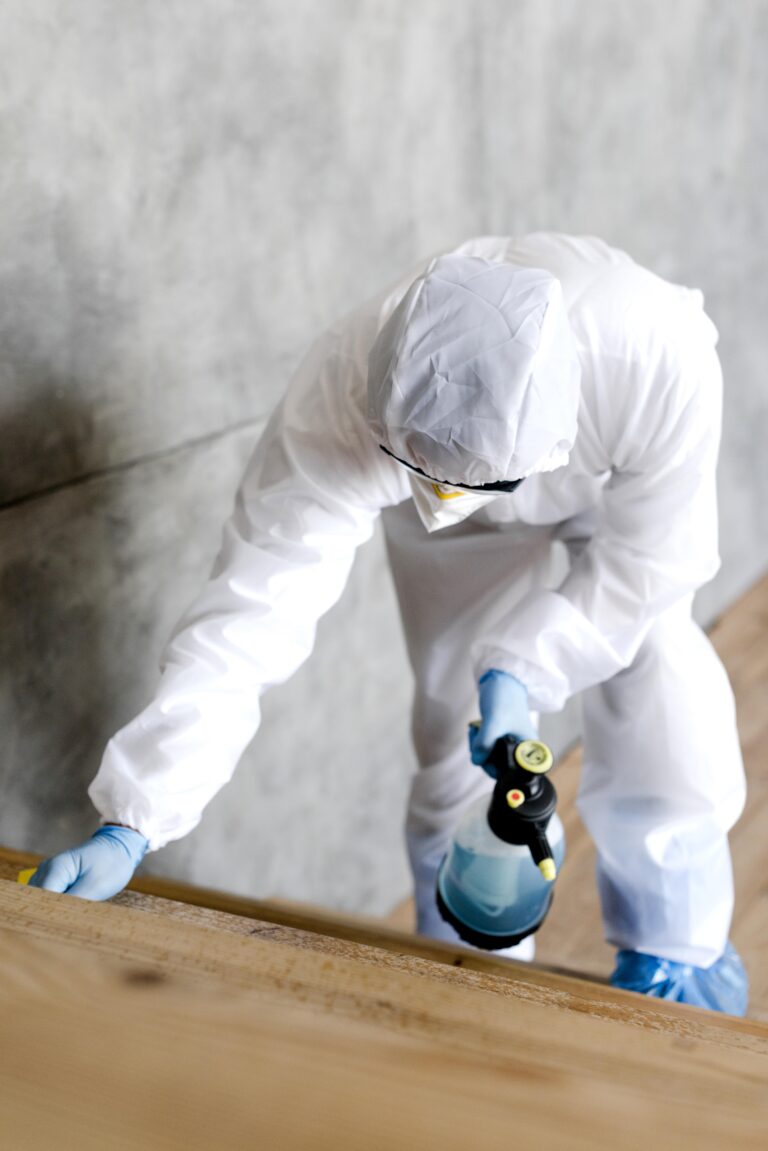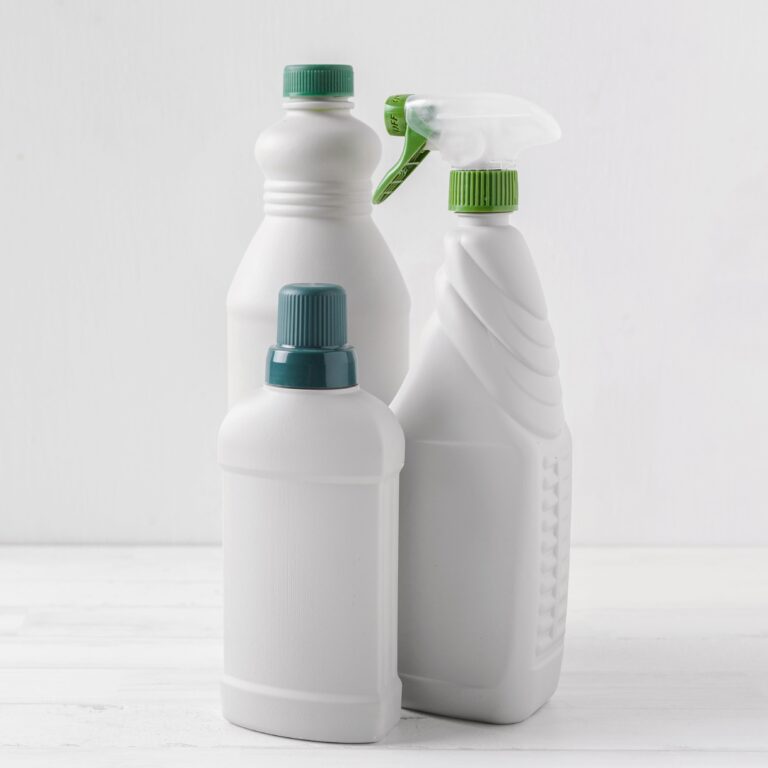Introduction
Overview of Office Productivity
In today’s fast-paced, competitive environment, office productivity plays a vital role in the success of organizations. It encompasses the efficiency and effectiveness with which employees utilize their time and resources to achieve organizational goals. Essentially, productivity is not just about how much work is done but also about the quality and impact of that work. High productivity often translates to increased profitability and customer satisfaction. Factors affecting productivity can include teamwork, use of technology, motivational levels, and, notably, the cleanliness of the workspace. A well-organized and tidy office can greatly influence an employee’s performance. Consider how a cluttered desk might distract you with loose papers, empty coffee cups, or outdated files. Alternatively, a clean and organized environment can create a focused atmosphere, allowing individuals to channel their energies into their tasks efficiently.
Importance of a Clean Workspace
The quality of the workspace is pivotal not only for personal sanity but also for overall team morale. A clean office is essential for various reasons:
- Health Protection: Dust, allergens, and germs can accumulate quickly in a cluttered space, leading to health issues and increased absenteeism among employees.
- Professional Image: A tidy office creates a positive impression on clients and visitors, showcasing the organization’s attention to detail and professionalism.
- Enhanced Creativity: A clean and organized environment fosters creativity and innovation. Employees can think more clearly when they are not surrounded by distractions.
Moreover, establishing a clean workspace often culminates in forming positive work habits. When employees feel good about their surroundings, they are more likely to take pride in their work, which invariably contributes to enhanced overall productivity. In summary, acknowledging the significance of office productivity linked with a clean workspace can be the foundation for cultivating a more effective work environment. Thus, the subsequent sections will delve deeper into the profound impact of routine cleaning on workplace productivity.
The Impact of Routine Cleaning on Office Productivity
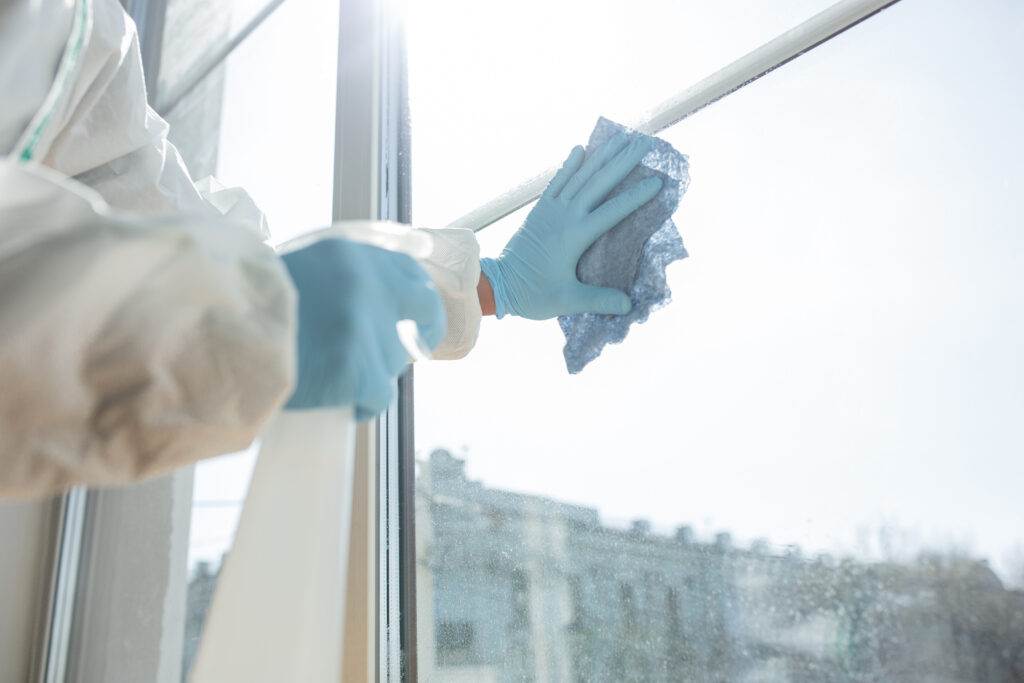
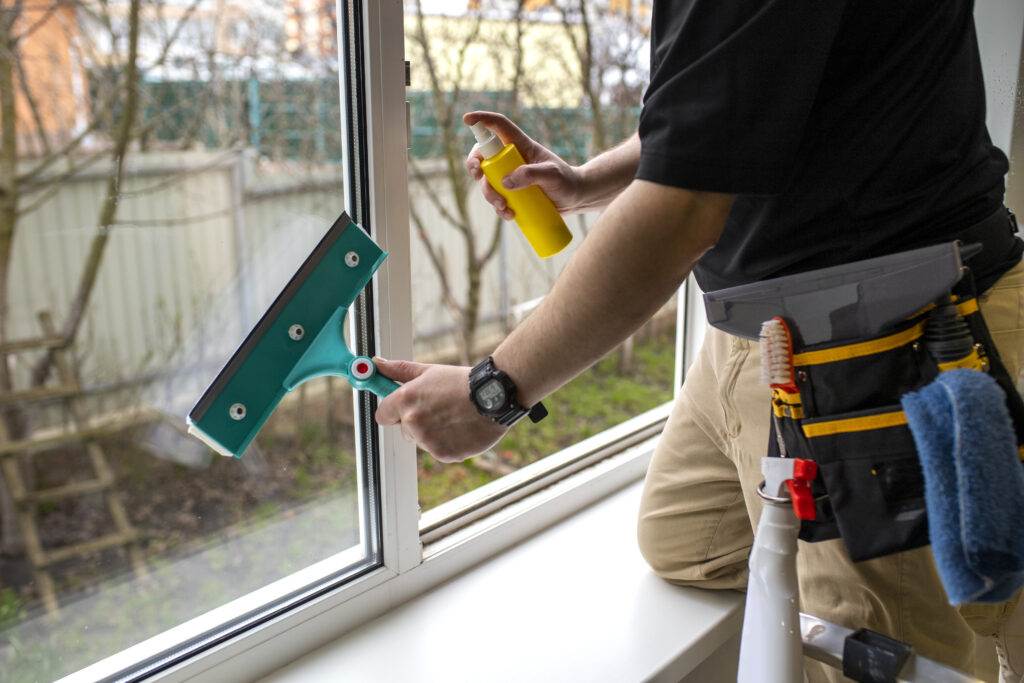

Study Findings on Cleanliness and Productivity
Numerous studies have highlighted the direct correlation between cleanliness and productivity in the workplace. Research indicates that employees working in clean environments demonstrate improved focus, motivation, and productivity levels. For instance, a study conducted by the Princeton University Neuroscience Institute found that individuals performing tasks in clutter-free settings experienced higher levels of concentration compared to those in disorganized spaces. Key findings from various studies include:
- Increased Efficiency: Employees in clean spaces are 20% more efficient in their tasks.
- Better Health Outcomes: A tidy workspace decreases the likelihood of illness, resulting in fewer sick days.
- Enhanced Employee Satisfaction: Workers report a higher sense of job satisfaction when their environment is clean, leading to better teamwork and productivity.
With these insights, it’s clear that routine cleaning not only enhances the aesthetic appeal of an office but substantially boosts overall productivity.
How Clutter Affects Work Efficiency
Clutter can be a significant hindrance to work efficiency. It diverts attention and creates unnecessary distractions, making it harder for employees to focus on their tasks. A messy desk, for example, might lead to:
- Increased Stress: Employees may feel overwhelmed and stressed when faced with disorganization, impacting their mental well-being.
- Time Loss Searching for Items: Searching for important documents amidst piles of clutter can waste precious work hours, thereby reducing overall efficiency.
- Decreased Creativity: A chaotic environment can stifle creativity and hinder problem-solving capabilities, as the brain is constantly distracted.
To combat the effects of clutter, adopting a regular cleaning routine is essential. Encouraging employees to take a few minutes at the end of each day to tidy their workstations can lead to significant improvements in morale and productivity. Simple practices such as organizing files digitally, clearing out expired materials, and maintaining a daily cleaning schedule can create a profound impact on workplace efficiency. By understanding these connections between routine cleaning and productivity, organizations can foster an environment that supports both the well-being of their employees and the goals of the business.
Benefits of Regular Cleaning in the Workplace
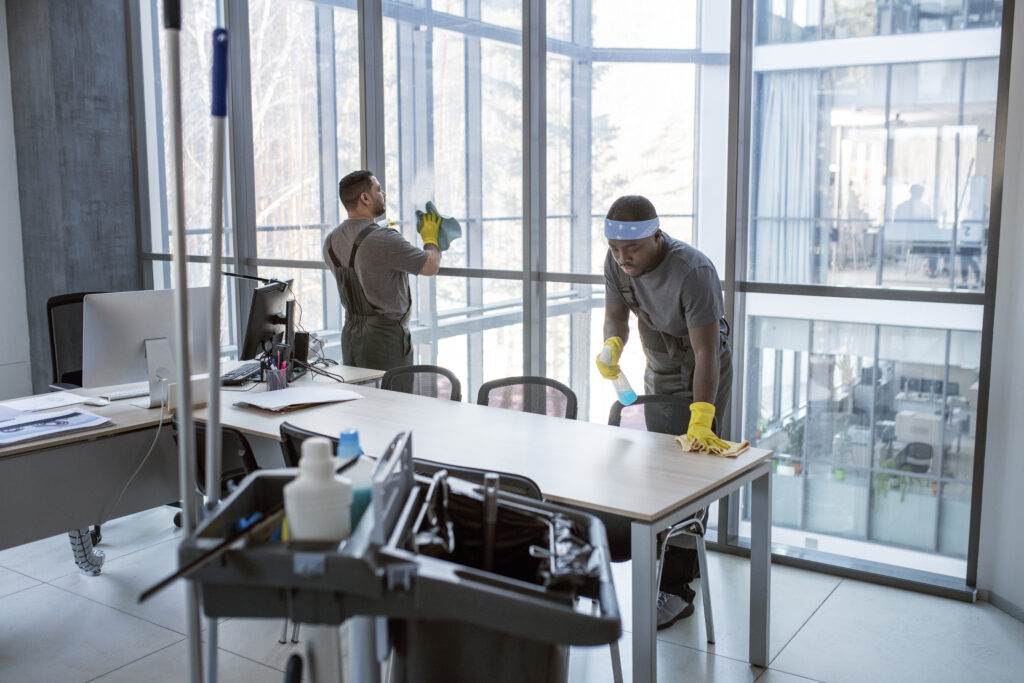
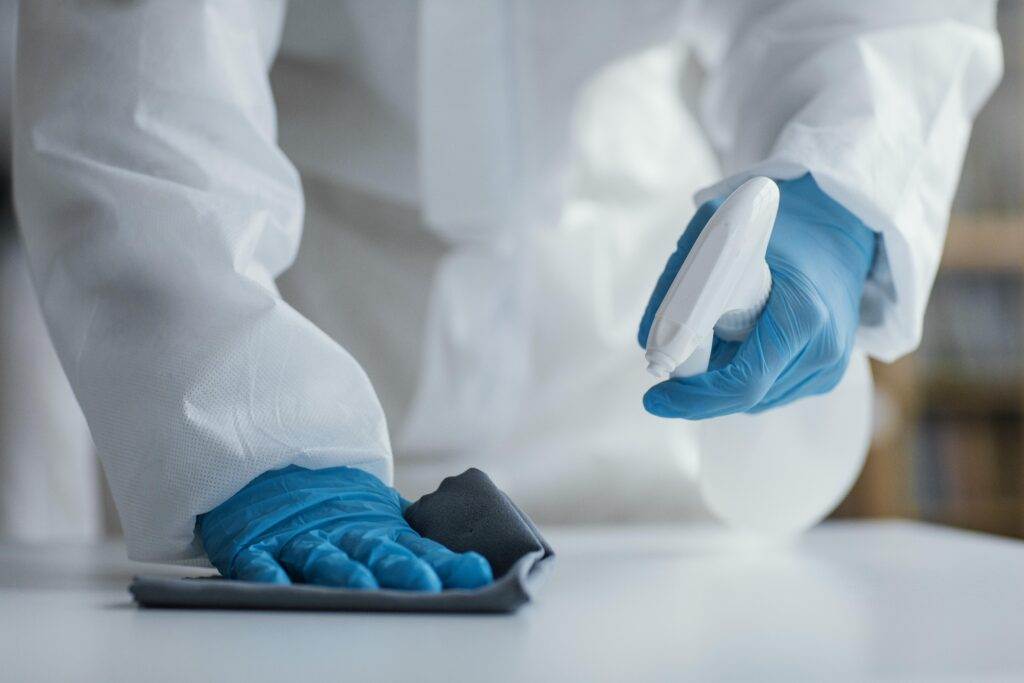
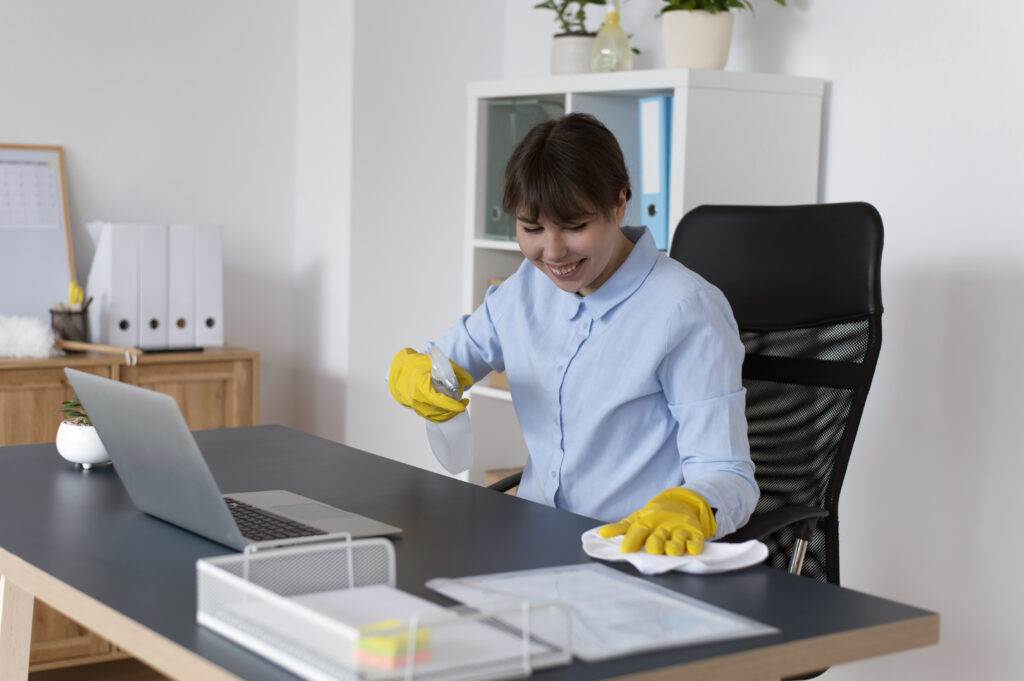

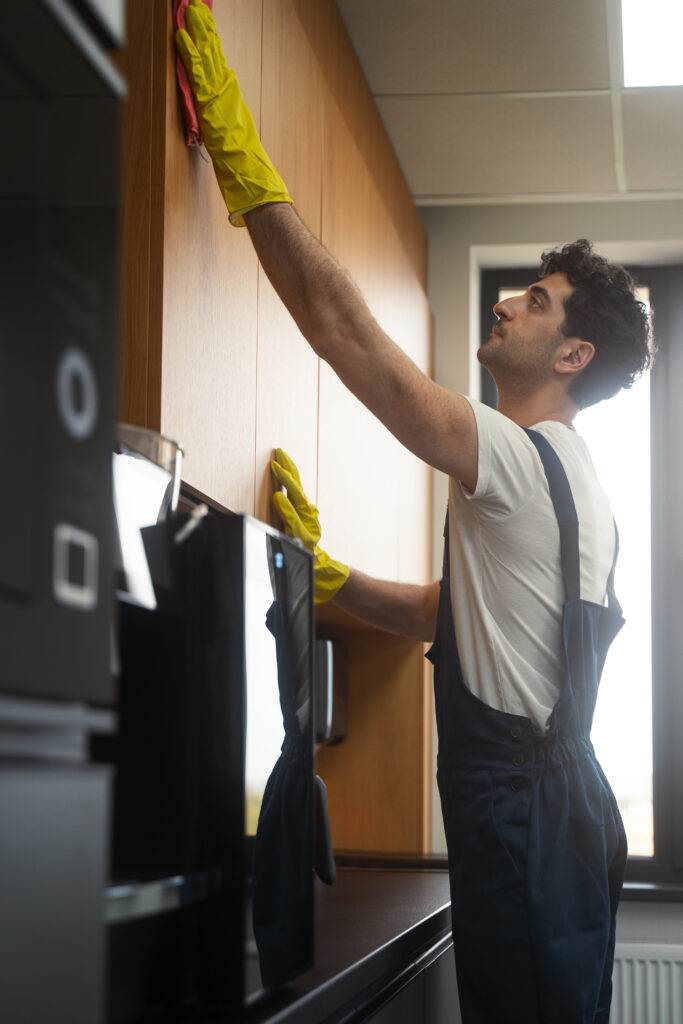
Reduced Stress Levels Among Employees
One of the most significant benefits of maintaining a clean workplace is the reduction in stress levels among employees. A clean environment contributes to a sense of order and control, which can greatly alleviate feelings of anxiety and overwhelm. Consider how you’ll feel arriving at a workstation filled with stacks of papers and empty takeout containers compared to one that is tidy and organized. The former can induce a sense of chaos, while the latter promotes calmness and clarity. Key reasons why a clean workspace helps lower stress include:
- Sense of Control: Employees are more likely to feel in control of their work when their surroundings are organized.
- Reduced Anxiety Triggers: Clutter can be a constant source of anxiety. Removing it can create a more serene atmosphere.
- Improved Team Dynamics: A clean workplace can lead to better interactions among colleagues, resulting in a more supportive and collaborative environment.
With less clutter comes a notable decrease in stress levels, allowing employees to focus more on their tasks rather than feeling overwhelmed by the mess around them.
Enhanced Focus and Concentration
Alongside reducing stress, regular cleaning significantly enhances focus and concentration. When distractions are minimized, employees can devote their mental energy to their work. Research highlights that clean, organized workspaces can bolster cognitive function. Here are some ways a clean workplace supports enhanced focus:
- Fewer Distractions: A clutter-free environment reduces visual distractions, enabling employees to concentrate on their workflow.
- Increased Productivity: With improved focus comes greater productivity, as employees can complete tasks more swiftly and efficiently.
- Encouragement for Task Completion: A clean slate often instills a sense of motivation, pushing employees to tackle their to-do lists with renewed vigor.
To maximize these benefits, regular cleaning should be integrated into the organizational routine. Companies can encourage staff to set aside time each week for cleaning their workspaces, further solidifying the connection between cleanliness and increased focus. In summary, regular cleaning not only helps alleviate stress but also enhances employees’ ability to concentrate, leading to a more productive and harmonious workplace. By fostering an environment that prioritizes cleanliness, organizations can truly cultivate a culture of well-being and efficiency among their teams.
Establishing an Effective Cleaning Routine
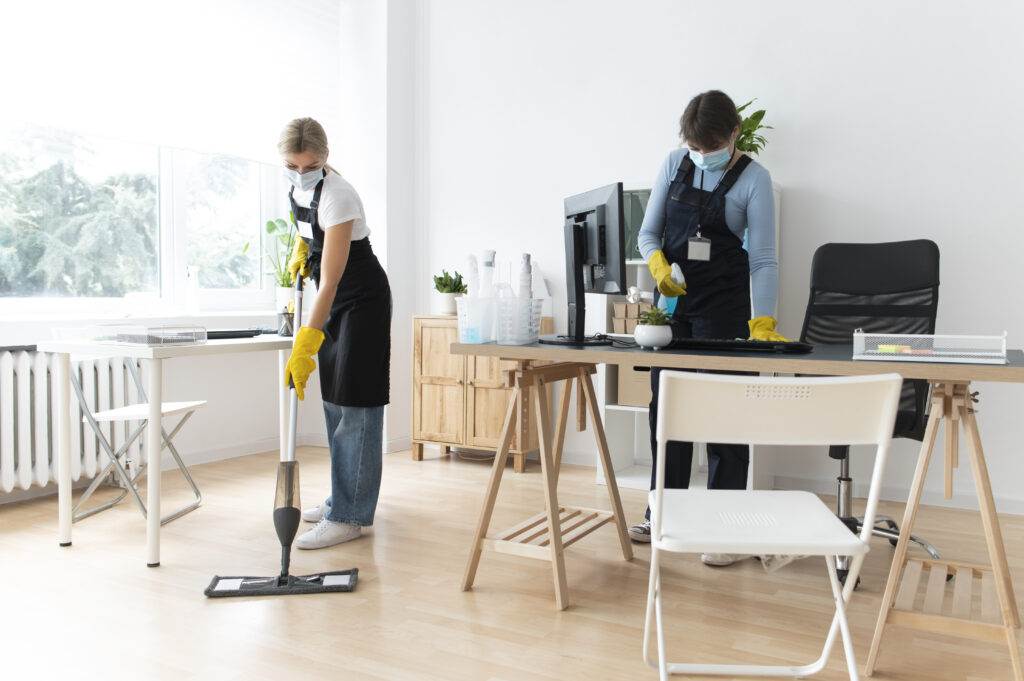
Tips for Maintaining a Clean Office Environment
To reap the benefits of a clean and organized workplace, establishing a consistent cleaning routine is paramount. It’s not just about a one-time deep cleaning; it’s about daily habits that promote a tidy environment. Here are some practical tips to help maintain a clean office:
- Daily Tidying: Encourage employees to spend a few minutes at the end of each day storing away materials, organizing desk items, and filing papers. This small daily effort can prevent clutter from accumulating.
- Designate Cleaning Zones: Assign specific areas to teams or individuals. This makes it clear who is responsible for keeping which parts of the office clean, fostering ownership and accountability.
- Utilize Organizational Tools: Provide storage solutions such as bins, shelves, and file cabinets. Easy access to organization tools can streamline the process of maintaining cleanliness.
- Implement a Clean Desk Policy: Encourage employees to keep their desks clear of unnecessary items and to refrain from leaving personal belongings scattered around.
- Promote a Tidy Kitchen Area: The shared kitchen is often a place of mess. Encourage everyone to clean up after themselves and provide cleaning supplies readily available.
By adopting these practices, organizations can create a culture of cleanliness that fosters well-being and productivity among employees.
Implementing Cleaning Schedules
In addition to daily habits, having a formal cleaning schedule is essential to ensure that deeper cleaning tasks are regularly addressed. Below are effective steps for implementing a cleaning schedule:
- Identify Tasks: Outline the cleaning tasks needed for different areas of the office. This can include vacuuming, dusting, sanitizing surfaces, and organizing communal areas.
- Assign Responsibilities: Designate specific individuals or teams to handle particular tasks. Assigning roles helps in accountability and ensures every area of the workplace is well-maintained.
- Create a Timetable:Develop a timetable, listing daily, weekly, and monthly tasks. For example:FrequencyTaskDailyClean kitchen surfacesWeeklyVacuum carpetsMonthlyDeep clean the break room
- Monitor Progress: Regularly check the cleaning schedule to ensure tasks are being completed. This can be done through short meetings or checklists.
- Gather Feedback: Solicit input from employees on the cleaning routine. This not only encourages a sense of participation but also helps identify areas needing improvement.
By establishing a combination of daily habits and a structured cleaning schedule, organizations can cultivate a consistently clean and organized workspace. This commitment not only enhances productivity but also contributes positively to the overall workplace atmosphere.
Conclusion

ummary of the Importance of Routine Cleaning
In conclusion, the impact of routine cleaning in the workplace cannot be overstated. Throughout this discussion, we have explored how a clean environment significantly enhances office productivity, reduces stress levels, and creates an atmosphere conducive to focus and concentration. Regular cleaning habits should be viewed as a critical component of office culture, rather than an afterthought. Not only does a tidy workspace protect employee health, but it also promotes a sense of pride and ownership in one’s work environment. Consider these key takeaways:
- Health Benefits: Reduces allergens and bacteria, contributing to a healthier workplace.
- Improved Focus: Minimizes distractions, allowing employees to concentrate better.
- Enhanced Morale: A clean, organized space boosts employee satisfaction and engagement.
By understanding the numerous advantages of maintaining cleanliness, organizations can foster a culture that supports both individual and collective productivity.
Encouraging Productivity Through Cleanliness
To truly encourage productivity through cleanliness, organizations need to prioritize both daily maintenance and systematic cleaning routines. Investing in a structured cleaning plan helps establish a sense of order, promoting well-being and efficiency within teams. Here are some strategies to further encourage productivity through cleanliness:
- Create a Shared Responsibility: Foster a team mindset where everyone feels responsible for maintaining cleanliness. This can be achieved through team meetings that emphasize the importance of a tidy workspace.
- Recognize and Appreciate Efforts: Celebrate employees who actively contribute to a clean office environment. Recognition can be as simple as verbal praise or more formal acknowledgments during company meetings.
- Provide Resources and Training: Ensure employees have the necessary tools and training to maintain cleanliness effectively, such as providing supplies and guidance on how to organize workspaces.
By implementing these strategies, organizations can cultivate an atmosphere of pride and accountability. As employees see the direct correlation between cleanliness and productivity, they are likely to remain motivated and engaged in their work. Ultimately, the journey towards enhanced productivity begins with a commitment to routine cleaning. By continuing to emphasize and prioritize cleanliness, organizations can unlock the full potential of their teams while creating a positive, productive workplace environment




